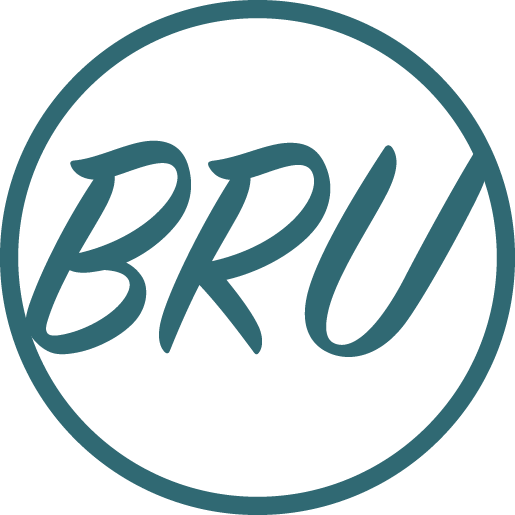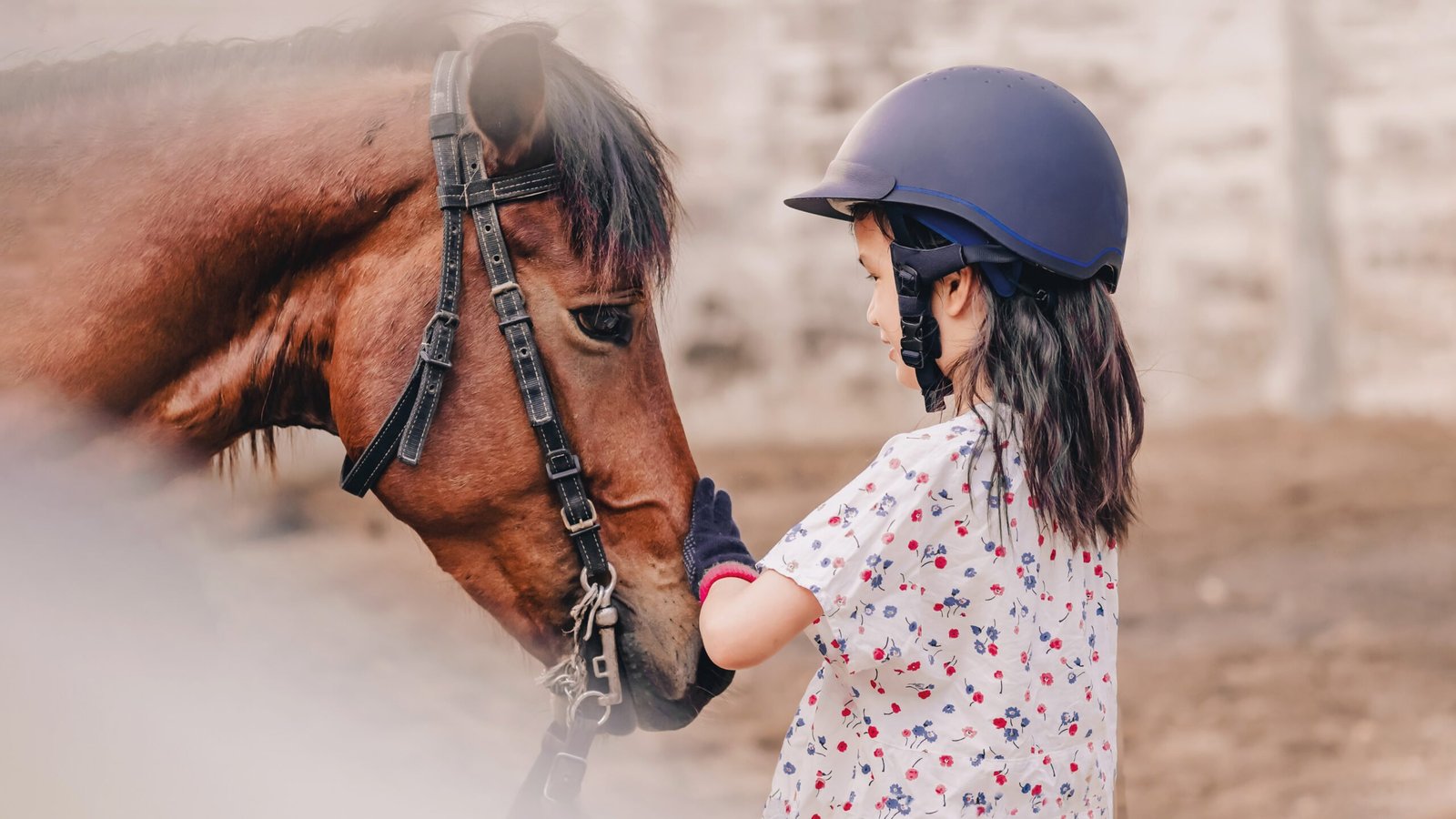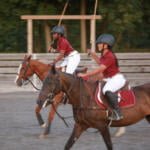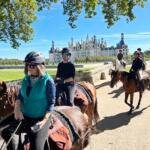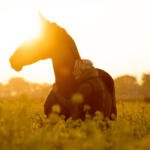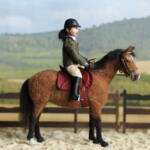Since her first riding lesson on a free pony, Sara Boelt of Lighter Mount Horsemanship in Old Fort, NC, has developed her love of horses into a lifelong passion. Now, as a riding instructor and Ride and Tie Association Vice President, she’s passing on her knowledge and sense of adventure to new riders.
BRU met with Boelt to discuss her lesson program’s focus on horsemanship fundamentals, her emphasis on safety and confidence, and how people can find more ways to get involved in their local horse communities.
This interview has been edited for length and clarity.
BRU: What first drew you to horses?
SB: I grew up on a small farm in Virginia, and somebody gave us a pony that was blind in one eye, so I started taking lessons when my family could afford it. Then, my great-aunt bought our family a second pony. I would ride that pony down the road for lessons and ride her home.
When my mom and dad got divorced, and my mom, my brother, and I moved to North Carolina, the pony stayed with my dad. My mom eventually realized how miserable I was, and she bought me my first horse, Lighter. He was two and a half.
In retrospect, he was not an appropriate horse for a fifteen-year-old, (laughs) but he turned out to be the best horse in the world. I had him until he was almost thirty-six.
He went through high school and college with me and to all of the various farms that I’ve worked at. He was my all-time heart horse. I had to have him put down two years ago, and that was really, really hard. Lighter got me through so much in my life.

BRU: What disciplines have you been involved in, and how did you become a trainer?
SB: Lighter and I did some open hunter pleasure shows, and a little bit of jumping and Western pleasure. After college, I got into obstacles, and there’s a sport called TREC, which includes orienteering on horseback, flatwork, and obstacles. I did that for a couple of years.
Then, I worked on a Paso Fino horse farm before I started teaching lessons and landed a job at a summer camp. That’s been my focus for the last fifteen years. I’ve got a fun group of barn rats that come to the barn every day. I do it full-time. It’s a labor of love.
My goal with my program is to give every rider a good foundation in basic horsemanship so they can go ride any discipline that they choose. I teach lessons in the ring and on the trail. I love horse obstacles, so I incorporate those. Kids are my specialty, but I also enjoy adults. I enjoy helping folks who may have had a bad experience somewhere along the line overcome their fears.
In 2009, I got involved with ride and tie, and I started taking some of my students to horse shows and ride and tie events. Ride and tie is my thing. When you go to a ride, everybody is so happy. It’s just fun. I’m also a former president and current vice president of the Ride and Tie Association.
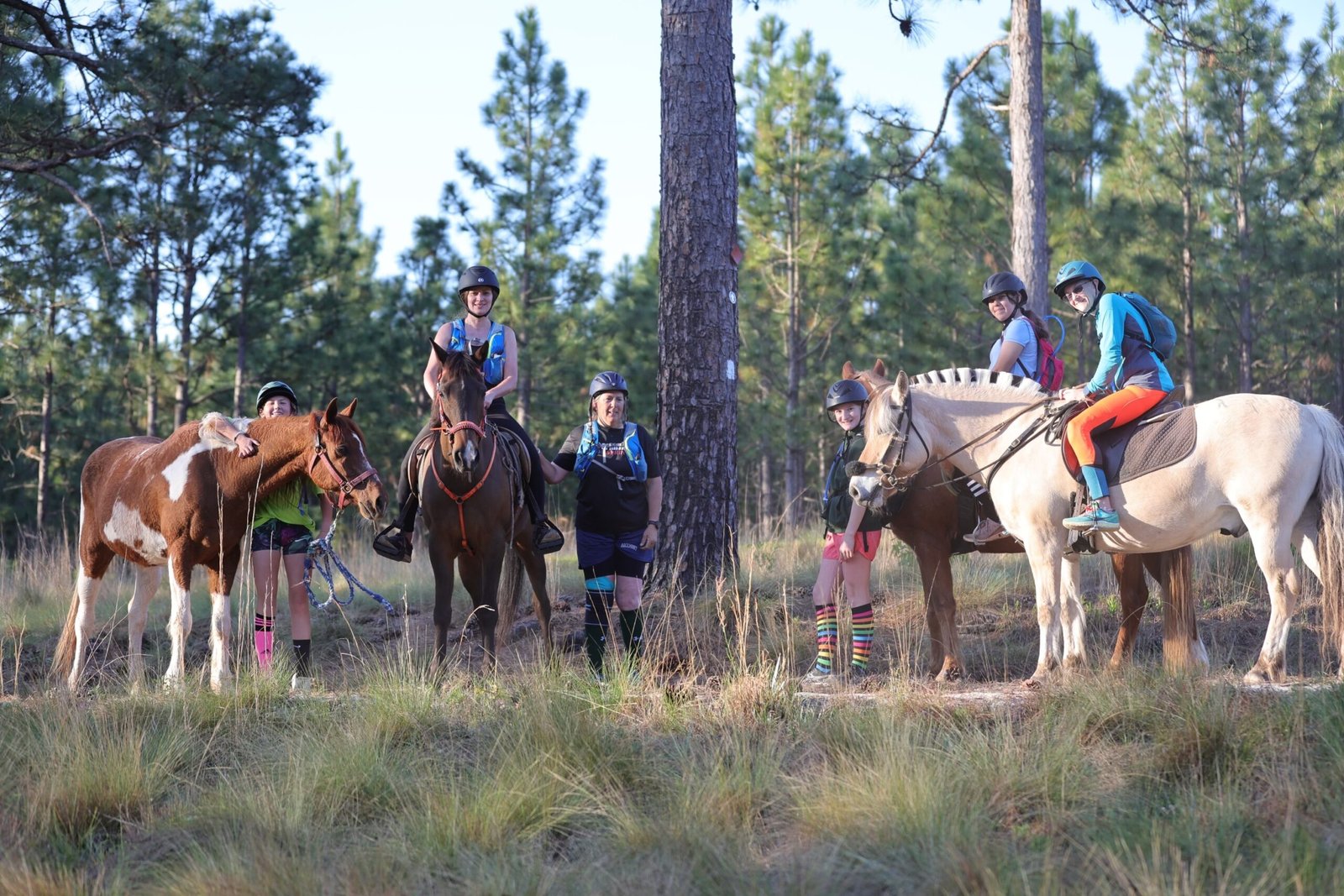
BRU: What have you learned from horses?
SB: I’ve learned that they’re wonderful therapy! They can teach kids to focus, but they can also teach you how to love. Horses love unconditionally and are there for you, whether you need a hug, need to tell someone a secret, or anything else.
I think almost every kid has some sort of family or school situation that they’re struggling with. I love to see them hugging on the horses while they’re riding. I also think horses teach you patience.
BRU: What sort of difficulties related to horses and your job have you needed to overcome?
SB: I’m a shy person. It took me a while to figure out how to use my voice and communicate well as a teacher.
There are always difficulties, day to day, like dealing with the weather and trying to figure out how to handle things. I’m currently in the process of moving to Old Fort, NC, and trying to figure out that transition for my students and horses. That’s one of my struggles now.
BRU: Is there an aspect of educating riders that you’re passionate about?
SB: Two areas I focus on are safety and concern for the horse, including basic horse health. I did a ground lesson with the kids the other day about how to take temperatures, how to listen to horses’ hearts, and those sorts of things.
I think it’s important for kids to learn how to pay attention to horse behaviors and to handle them safely because I hear all these stories from adults who’ll come ride with me and say, “I haven’t ridden a horse since I was ten years old. I had a horrible experience.”
We all have horrible experiences sometimes, but I feel that if a student learns about safety early, that knowledge will stick with them and build confidence, even through the hard experiences.
BRU: Can you tell me about some of your horses now?
SB: I have an Arabian named Astro. He’ll be twenty-three this year, and I’ve had him since he was four. He’s my buddy. He’s been my ride and tie horse for years now. Another Arabian, T-Bop, will be twenty-seven this year. I have a half-Arabian, half-Percheron named Zack. He’s a little quirky from his upbringing, but he’s a special horse.
BRU: Are there any equestrian professionals who’ve made an impact on your life?
SB: I had a dear friend and mentor named Larry Lindsey while I was living in South Carolina. I kept my horses at his barn, and if I was struggling with something, he would always pitch in and help. There’ve been others along the way and some that I’ve worked for.
During college, I worked for a man who raised quarter horses here in North Carolina, and he had a big impact as well. Just like with anybody, there are things you greatly agree with and things you disagree with. But, when you have an older, experienced person helping you, it allows you to sort out what you believe in and what you don’t believe in.

BRU: What advice would you give someone who wants to be more involved with horses?
SB: Take lessons. If you can’t do that, go volunteer at a barn, horse rescue, or somewhere else you can start learning a little bit about horses. It’s important to get up the courage to start somewhere.
Go to a horse show and volunteer. Go to a ride and tie and volunteer. There’s so much knowledge out there, and I’m a proponent of volunteering because you can learn so much. Go watch a horse show—do anything you can to get started—and let it progress from there.
BRU: Do you have any advice for riders who’d like to become professionals?
SB: Keep your nose to the grindstone. Keep pushing. It’s hard work, and it’s rewarding, but you’ve got to keep at it. You’ve got to keep moving forward even when it gets rough. Just keep going. It will get more rewarding. You’ve got to build the work ethic required. You can’t do it without putting the time in.
To contact Sara or learn more about her lesson program, reach out to her on Facebook.
Want to nominate someone for a feature interview? Please get in touch!
